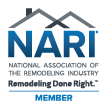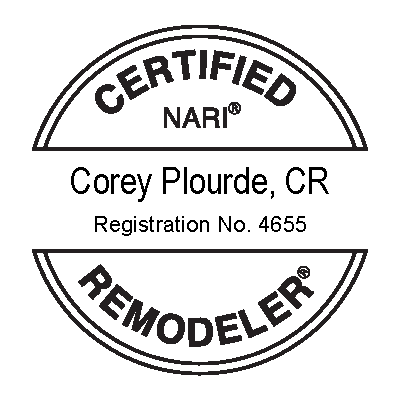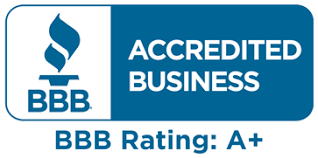What is the Best Countertop Material for your Dream Kitchen?
/There are lots of options on the market for kitchen countertops, Consider the pros and cons of each type. Here are the Pros and the Cons listed below for you!
Granite:
Many luxury spaces have the beauty of Granite. Fortunately this expensive material is coming down in price due to the increase of engineered stones popularity!
Pros:
• Almost impervious to heat
• Nearly 3,000 different colors and types available
• Very strong and durable
• Adds real estate value to home
• Nearly maintenance-free when treated with newer sealers
Cons:
• Very expensive material
• Slabs may have imperfections
• Stone is porous and requires sealing to avoid stains
• Can crack if stressed or improperly installed
• Not suitable for DIY installation
• Knives are quickly dulled by cutting on granite
Soap Stone
It is quite hard and resistant to stain but will scratch over time.
Pros:
• Offers antique, historic look to a kitchen
• Deep, rich color
• Somewhat stain resistant
• Damage can be sanded out
• Fairly impervious to heat
Cons:
• Must be treated with mineral oil
• May darken over time
• Surface can scratch and dent, though this can create an attractive antique look
• DIY installation not possible
Marble
Exquisitely beautiful marble may not be the best choice for kitchens as it tends to scratch and stain easily. Although there are sealers that can reduce the upkeep on marble it’s just more unpredictable than granite or quartz.
Pros:
• Exceptionally beautiful stone, with unique veining
• Adds to real estate value of a home
• Waterproof and heatproof
Cons:
• Expensive
• Stone is porous and stains easily unless sealed
• DIY installation not possible
• Can be scratched; repairs are difficult
Quartz
It is an engineered stone product that contains as much as high in the 90 percent range quartz particles and other minerals, shaped into slabs and bound with resins. These are not solid.
Pros:
• Can be custom-fabricated in any size and shape
• More convincing, natural appearance than solid surface material
• Easy to maintain, no sealing required
• Resists stains and is impervious to heat and acid
• Slabs are uniform, with no imperfections
• DIY installation possible, though countertops are very heavy
Cons:
• Expensive
Laminates
Recently we have seen a recent surge in popularity due to it now being offered in more colors and design patterns, such as a granite look.
Pros:
• Thousands of options available
• Very easy to maintain
• Very inexpensive countertop option
• DIY installation is relatively easy
Cons:
• Surfaces can be scratched and chipped; damage is almost impossible to repair
• Seams are always visible
• Custom edging and backsplash treatments can add expense
• May be viewed as "low-end" by potential home buyers
Hardwoods
Maple and oak are the species most often used as countertop woods.
Pros:
• Offers a quaint, country look in most kitchens
• Relatively easy to clean
• Can be sanded and resealed, as needed
• Very long-lasting when properly cared for
Cons:
• Can be damaged by water and stains over time
• Surfaces can be scratched and cut by knives
• Wood is subject to cracking if not maintained; must be oiled and sealed frequently
• Bacteria can be a problem if not properly maintained
• Fairly expensive countertop material
Stainless steel
It is heat resistant and durable. Because they're constructed to your specifications, you can have a seamless countertop.
Pros:
• Excellent for modern-style kitchens
• Impervious to heat damage
• Easiest of all countertop materials to clean
• Regarded as "premium" countertop; adds real estate value
Cons:
• Very expensive to fabricate
• Can be easily scratched; not a cutting surface
• Noisy
Concrete
It can be subject to cracking, new treatments can reduce this tendency. The porousness of concrete can be reduced with additives.
Pros:
• Heat and scratch resistant
• Can be color-tinted
• Provides a look that is exotic and unusual
• Decorative textures and colors are possible
Cons:
• Costs are high due to custom work
• No DIY installation possible
• Cracking may occur over time
Appearance may seem "industrial'; may be viewed negatively by future home buyers
Surface is porous unless regularly sealed
Solid-surface material
Corian, and Swanstone, is a man-made material consisting of a blend of acrylic particles and resins that are pressed into sheets and other shapes. This is now considered somewhat mid-tier, but it is still an excellent choice for mid-range kitchens.
Pros:
• Available in many, many colors and patterns
• Seams are virtually invisible
• Resists staining
• Damage can be easily sanded out
• Integrated sink/countertop units are available
Cons:
• Vulnerable to damage from hot pans
• Moderately expensive
• No DIY installation; must be fabricated by pros












